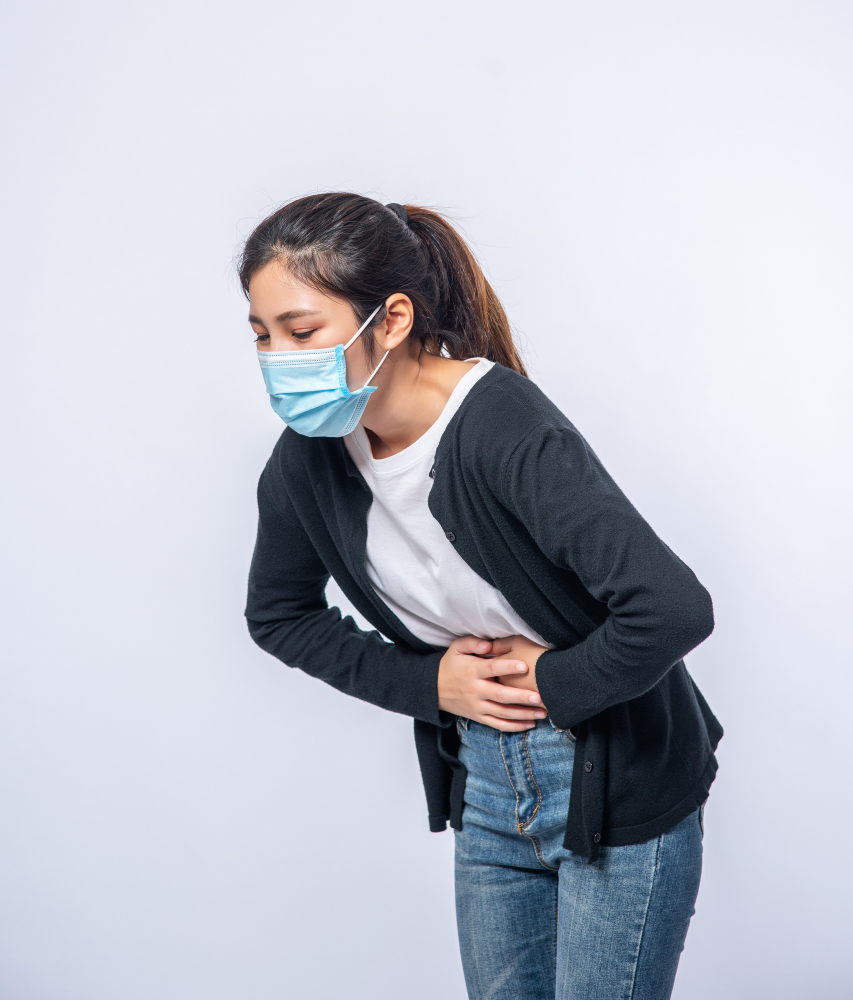Leucorrhoea is a term used to describe any vaginal discharge apart from menstrual discharge. Commonly known as white discharge, leucorrhoea is a fluid secreted by glands in the vagina and cervix. Normally it is a physiological discharge and is naturally acidic in pH, thus helps in preventing infections and promotes a good balance of bacterial flora necessary for a healthy vagina. It also acts as a lubricant.
However, sometimes the vagina’s natural balance gets disturbed due to underlying infection or a disease and the fluid changes in consistency, colour and odour. This is Abnormal Leucorrhoea.
Causes of Leucorrhoea
It is normal to have slight increase in vaginal discharge halfway through the menstrual cycle, during the ovulation phase.
Physiological leucorrhoea occurs during pregnancy due to increase in vaginal and cervical secretions as a result of fluctuating hormonal levels and changes in cervix.
Leucorrhoea can also normally occur in sexually aroused situations, breastfeeding, adolescence, during puberty etc.
Abnormal leucorrhoea can be caused by:
- Use of Medications such as antibiotic or steroid use
- Use of Contraception or Birth control pills
- Infections such as Bacterial or Fungal vaginal infections
- Sexually transmitted diseases such as Syphilis, Gonorrhoea, Chlamydia etc
- Pelvic Inflammatory Diseases
- Cervical Cancer
- Use of douches, tampons, penetrable contraceptive devices and feminine hygiene products
Contributory factors:
- Poor hygiene can lead to infections
- Diabetes, when poorly controlled, reduces resistance to opportunistic infections
- Unhealthy diet and lifestyle can also result in leucorrhoea
- Mental health issues like stress, anxiety, sexual tension also have impact on vaginal secretions
Symptoms of Leucorrhoea
The symptoms of leucorrhea include:
- Whitish/yellowish discharge usually thick in consistency
- Irritation, burning and itching of the vagina and vulva
- Unpleasant or foul-smelling discharge
- Lower abdominal pain or discomfort
- Painful Sexual Intercourse (Dyspareunia)
- Burning sensation while urinating and frequent urge to urinate
- Digestive disturbances like constipation
- Lower Back Pain/ Calf Pain
Management of Leucorrhoea
To manage leucorrhoea:
- Stay hydrated. Drink plenty of water and fluids such as teas and soups.
- Eat a healthy, well-balanced diet. Include fresh fruits, vegetables and probiotics in your diet. Complex carbohydrates (like whole grains, brown rice, oats, etc), lean protein (fish, nuts, sprouts, etc) and low-fat dairy products are a few healthy options to consider.
- Maintain proper hygiene. Wear loose, cotton clothes and comfortable undergarments that allow your skin to breathe. Wash and clean the vaginal area properly.
- Avoid cosmetic use. Avoid use of fancy or scented cosmetics in the area. Avoid use of penetrable contraceptive or menstrual devices
- Stay fit and exercise daily. Maintaining a healthy body weight can help you avoid various health issues that could contribute to leucorrhoea.
- Don’t self medicate. Avoid indiscriminate use of antibiotics, steroids and oral contraceptive pills.
Treatment of leucorrhoea
Treatment of leucorrhoea with homoeopathy offers long term relief with no recurrence or side effects. It treats a patient based on their peculiarities and the root cause. Leucorrhoea is a sign of an underlying disease condition which needs to be treated. Therefore, merely topical treatment is not sufficient.
Some important homoeopathic medicines for leucorrhoea:
Sepia Officinalis: it is an important remedy for leucorrhoea which is profuse, gushing, offensive, accompanied with bearing down sensation in the vagina. Also indicated well in leucorrhoea in young girls. It is used in the treatment of chronic leucorrhoea due to endometritis, endo-cervicitis or ulceration of cervix with itching and burning pain in vulva and vagina.
Kreosotum: This remedy is used to treat acrid and offensive vaginal discharge that causes swelling, burning and itching in the vagina, vulva and between the thighs. It treats leucorrhoea during pregnancy. The discharge stains yellow or stiffens the underwear. Excoriating and offensive discharge is characteristic of this remedy.
Alumina: It treats leucorrhoea that is acrid, irritating and patient feels better after washing with cold water. Leucorrhoea that is worse after menses and during daytime. This discharge is accompanied by pain in back and scanty, exhausting menses. The Alumina patient usually suffers from constipation.
Carbo Animalis: The leucorrhoea that is followed by great exhaustion is well treated by this medicine. It works well in cases of offensive lrucorrhoea during pregnancy.
Graphites: This medicine works well in gushing leucorrhoea occurring in chilly females. It is worse when walking or stepping down the stairs. The discharge is profuse, thin, pale/white accompanied with great weakness in back.
Please note the above mentioned are a few of the numerous homoeopathic medicines used for the treatment of leucorrhoea. Homoeopathic treatment, being holistic, takes into consideration the cause, history, presentation, accompanying symptoms and the overall physical and mental status of the patient.
At Honey Homoeo Clinic, we have to our credit a rich experience of more than 30 years in treatment of numerous gynecological conditions. We aim at addressing the main cause of leucorrhoea. A detailed case history is taken for an accurate diagnosis. After determining the root cause, an individualized treatment is prescribed along with necessary dietary advice and counselling. Homoeopathic medicines act not only on the root cause of the disturbance but also improve the immunity of the patient.
For treatment of Leucorreha, contact us at HONEY HOMOEO CLINIC.



